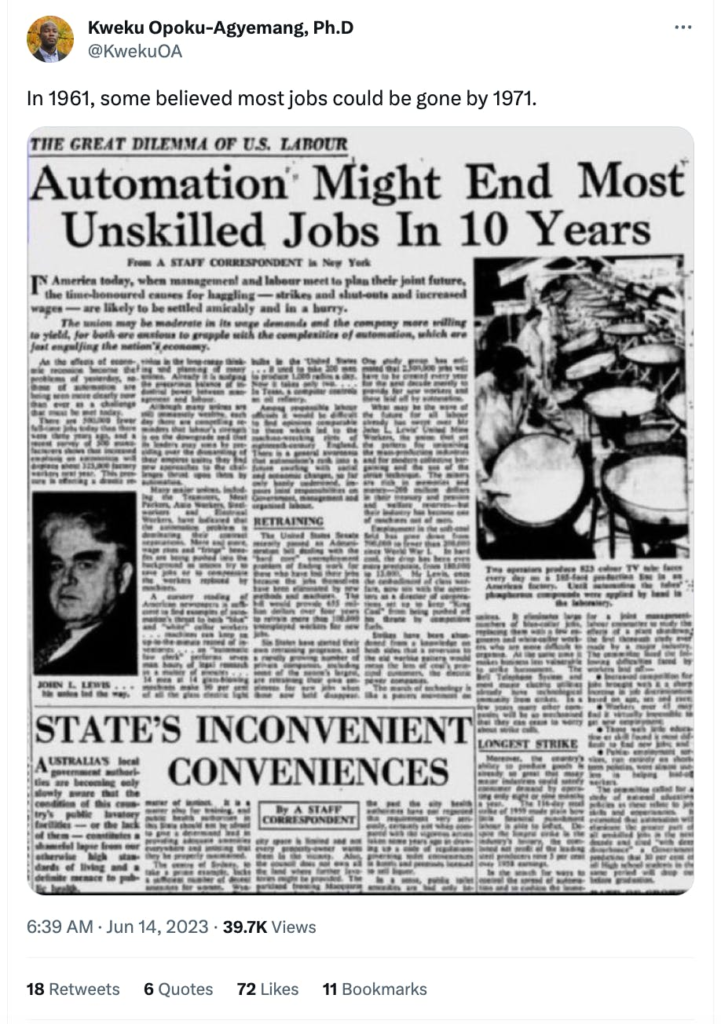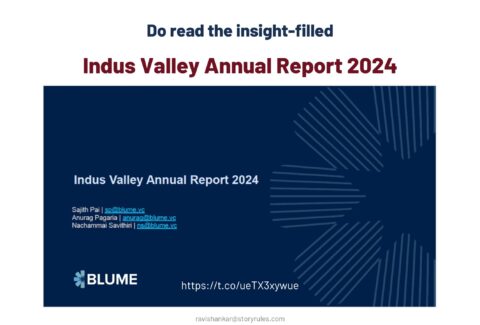Strategic Narrative with Andy Raskin
June 17, 2023 2023-06-28 12:14Strategic Narrative with Andy Raskin
Welcome to the seventeenth edition of ‘3-2-1 by Story Rules‘.
A newsletter recommending good examples of storytelling across:
- 3 tweets
- 2 articles, and
- 1 long-form content piece
Let’s dive in.
🐦 3 Tweets of the week

Human needs are infinite. We usually find new jobs to satisfy new needs.

Good thread by Tomas – call to arms to create more.

In this insightful thread, Nathan quotes Nassim Nicholas Taleb, who says: “If you want to be read in the future, make sure you would’ve been read in the past.“
📄 2 Articles of the week
a. What Does the West Really Know About Xi’s China? (Why Outsiders Struggle to Understand Beijing’s Decision-Making) By Odd Arne Westad
I’ve been seeing many China-themed articles in my timeline – most of them not very flattering. This thoughtful piece delves into the history of how China has become more authoritarian in the recent past.
There is little doubt that his (Xi Jinping) concerns about corruption and lax governance were shared by many Chinese in the early 2010s. The contempt with which newly rich Chinese treated officials and ordinary people alike was bound to create resentment and bitterness. The image of “Xi Dada” (roughly meaning “big daddy Xi”) as a people’s emperor who punished corruption and humbled haughty business leaders was a genuinely popular one, at least for a while. It was not until Xi grossly overreacted to the COVID-19 pandemic that the public began to ask tougher questions about his intentions. By then, however, it was much too late; Xi had consolidated his power within the CCP, and the party had extended its reach into society more deeply than at any point since the Mao era.
And this from the concluding para:
Xi’s own biggest fear must be that, rather than presiding over China’s inevitable rise, he is chairing his country’s emerging decline. The economy is not doing well under the triple whammy of unnecessary and unpredictable government intervention, COVID-19 aftereffects, and declining rates of investment, both domestic and foreign. Meanwhile, the CCP has helped provoke severe diplomatic conflicts with all of China’s main markets in Australia, Japan, Europe, and North America. And the country is facing demographic decline at a scale and speed never seen before in the modern era. All of this must make Xi fear that instead of being a twenty-first-century Stalin or Mao, he may end up instead as China’s Brezhnev, catalyzing the gradual erosion of the values he holds dear.
b. ‘Real estate is China’s economic Achilles heel’ by Noah Smith
And this one delves into one of the crucial sectors which had been an engine of growth for China, and how China needs to wean off from its dependency.
In other words, much of what made China’s economy special during its glorious decades was due to its unusual real estate system. Now that era is ending, and China is going to have to start looking much more like a normal developed country. If it fails to make that transition, difficult times could lie ahead.
🎤 1 long-form listen of the week
a. Lenny’s Podcast: The power of strategic narrative with Andy Raskin
If you are a growth-stage startup (especially in B2B Tech), you must consume everything that Andy Raskin puts out. Even if you are in a large established organisation, you can use his old-game/new-game framework to tell a more compelling story of your product to clients.
The host – Product Guru Lenny Rachitsky – makes the discussion very focused on specific use-cases and examples so that the audience has clear, tangible takeaways.
That’s all from this week’s edition.
Strategic Narrative with Andy RaskinStrategic Narrative with Andy Raskin







